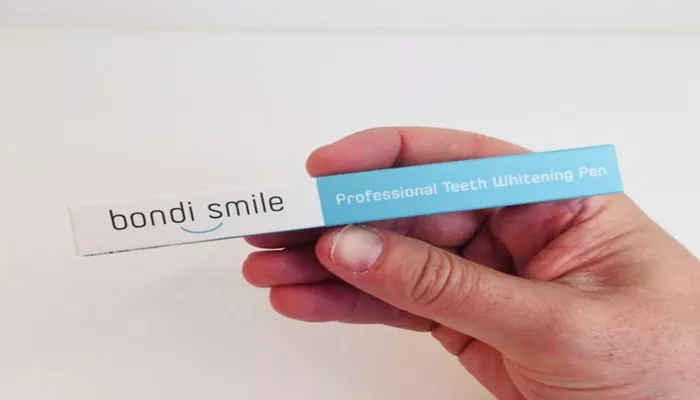Teeth whitening has become a popular cosmetic procedure across the United States, with many individuals seeking brighter smiles. However, the legality of who can perform teeth whitening varies significantly from state to state. Understanding these regulations is essential for both consumers and businesses looking to offer teeth whitening services. This article will provide a detailed overview of which states allow teeth whitening, the requirements for practitioners, and the implications of these regulations.
Overview of Teeth Whitening Regulations
Teeth whitening involves the application of bleaching agents to lighten the color of teeth. While this procedure is generally safe, it has raised concerns regarding who is qualified to perform it. Many states have established specific laws governing teeth whitening services, often requiring practitioners to hold a dental license. These regulations aim to protect consumers from potential harm associated with unregulated practices.
The landscape of teeth whitening regulations is complex, with some states allowing non-dentists to perform the procedure under certain conditions, while others strictly prohibit it. Below is a detailed look at various states and their respective regulations regarding teeth whitening.
States That Allow Teeth Whitening Without A License
Texas
Texas is one of the few states where no dental license is required to operate a teeth whitening business. The Texas Board of Dental Examiners does not regulate teeth whitening services, allowing non-dentists to provide these treatments freely.
Oklahoma
Similar to Texas, Oklahoma permits non-professionals to offer teeth whitening services without requiring a dental license.
This leniency has led to an increase in teeth whitening kiosks and salons throughout the state.
Nevada
In Nevada, non-dentists can legally perform teeth whitening treatments as long as they do not claim to be dentists or provide other dental services.
see also: How to Use Bright White Teeth Whitening Pen: A Step-by-Step Guide
Georgia
Georgia has seen changes in its regulations, allowing certain non-dental professionals to offer teeth whitening services under specific conditions.
Alabama
Alabama allows non-dentists to perform teeth whitening procedures, but there may be local regulations that vary by city or county.
States That Require A Dental License
California
In California, only licensed dental professionals may perform teeth whitening procedures. This regulation includes dentists and registered dental hygienists who have received proper training.
Florida
Florida mandates that only licensed dentists and dental hygienists can administer teeth whitening treatments. Dental assistants are not permitted to perform these procedures independently.
New York
New York law requires that any teeth whitening services be performed by licensed dentists or under their supervision.
North Carolina
North Carolina strictly regulates teeth whitening as a form of dentistry, requiring all practitioners to hold a dental license.
Non-dentists face legal consequences if they attempt to provide these services.
Connecticut
In Connecticut, only licensed dental professionals are allowed to conduct teeth whitening treatments, ensuring consumer safety and adherence to health standards.
Illinois
Illinois law stipulates that only licensed dentists can perform teeth whitening procedures, with strict penalties for unauthorized practice.
Pennsylvania
Similar to Illinois, Pennsylvania requires that all teeth whitening services be conducted by licensed dental professionals.
Massachusetts
Massachusetts law mandates that only licensed dentists may perform teeth whitening treatments, emphasizing consumer protection.
Michigan
In Michigan, only licensed dental professionals are authorized to conduct teeth whitening procedures.
Virginia
Virginia requires that all teeth whitening treatments be performed by licensed dentists or under their supervision.
States with Mixed Regulations
Colorado
Colorado allows some non-dental professionals to perform teeth whitening under certain conditions, but they must adhere to specific guidelines set forth by state regulations.
Arizona
Arizona has mixed regulations; while some non-dentists may offer limited services, they must comply with specific training and safety standards.
Washington
Washington allows certain non-dental professionals to provide teeth whitening services but requires them to follow strict guidelines regarding product use and safety measures.
Tennessee
Tennessee has seen ongoing discussions about the legality of non-dentist providers offering teeth whitening services; however, current regulations require oversight by licensed professionals in most cases.
South Carolina
South Carolina allows some flexibility for non-dentists providing teeth whitening services but emphasizes compliance with health and safety standards.
Implications for Consumers and Practitioners
Understanding the legal landscape surrounding teeth whitening is crucial for both consumers and practitioners:
For Consumers:
It is essential for consumers seeking teeth whitening services to ensure that they are receiving treatment from qualified professionals in compliance with state regulations.
Unregulated practices can lead to adverse effects such as tooth sensitivity or damage if performed incorrectly.
Consumers should seek out licensed dental offices or reputable salons that adhere to state laws for safe and effective treatments.
Conclusion
The regulation of teeth whitening varies widely across the United States, with some states allowing non-dentists to perform the procedure while others require strict adherence to licensing laws. As the demand for cosmetic dentistry continues to grow, it is crucial for both consumers and practitioners to understand these regulations fully.
By ensuring compliance with state laws, consumers can receive safe and effective treatment while practitioners can operate within legal frameworks that protect both their businesses and their clients’ health.
Related topics:

